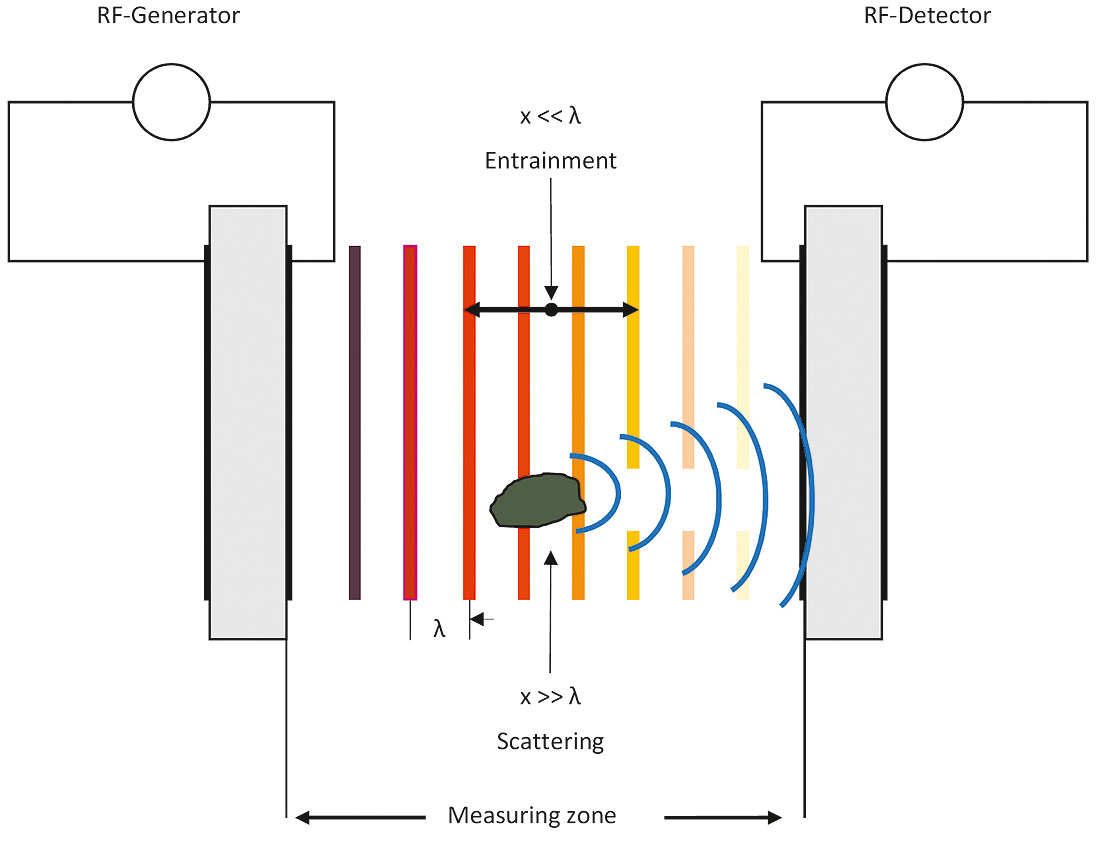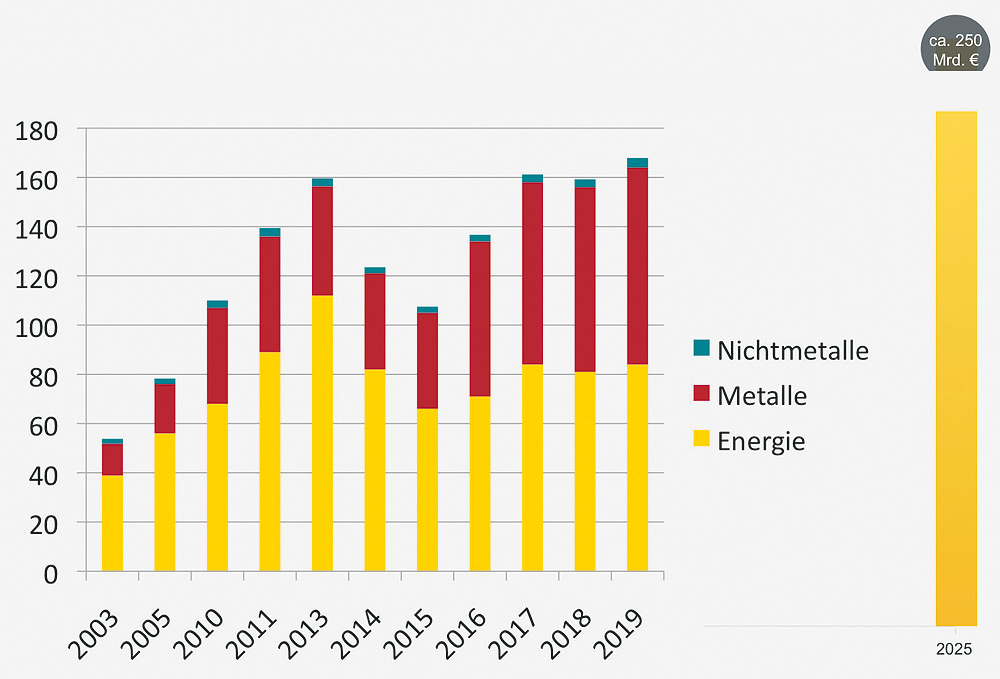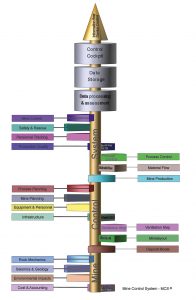Since the beginning of 2020 we have been reeling under the impact of the corona virus/COVID 19 pandemic that first struck China and South Korea and then in February spread to the rest of the world. Public life has, by and large, been seriously restricted and the economy is facing a recession the like of which we have not seen since the Second World War. And of course the mining industry has not been spared from all this. So far around 1,600 mining companies have had to close down their operations either temporarily or permanently, with serious implications for raw materials production … Read more
With my best regards // Mit freundlichem Glückauf
Dipl.-Ing. Andreas-Peter Sitte
Chief Editor Mining Report Glückauf, Essen
Smart Mining – Today and Tomorrow

Fig. 1. Developing people and technology – the Institute for Advanced Mining Technology of the RWTH Aachen University. // Bild 1. Menschen und Technik fördern – das Institute for Advanced Mining Technology an der RWTH Aachen. Photo/Foto: RWTH Aachen.
Authors/Autoren: Aarti Sörensen M. A., Prof. Dr.-Ing. Karl Nienhaus, Prof. Dr.-Ing. Elisabeth Clausen, Institute for Advanced Mining Technologies (AMT), RWTH Aachen University, Aachen/Germany
Read moreCulturing Innovation in Mines
Technologies already exist to begin addressing some of mining’s biggest problems, but all too often, attempts to innovate yield disappointing results. It is not enough to build great strategies and hire bright people; to fully leverage what technology can offer, mines need to address fundamental issues with culture. This article discusses how to foster the curiosity, courage, communication, collaboration and diversity that culturing innovation requires.Author/Autor: Amanda Truscott B. A. and M. J., CEO, Rithmik Solutions, Montreal/Canada
Read moreSustainable Intelligent Mining Systems (SIMS), one Step Closer to the Mine of the Future

Fig. 2. Precise localization and positioning of vehicles underground is the basis for their automation. // Bild 2. Eine präzise Lokalisierung und Positionsbestimmung von Fahrzeugen unter Tage ist die Grundlage für deren Automatisierung. Source/Quelle: SIMS-Project
Authors/Autoren: Tobias Wendel M. Sc., Dr.-Ing. Ralph Baltes, Prof. Dr.-Ing. Elisabeth Clausen, Institute for Advanced Mining Technologies (AMT), RWTH Aachen University, Aachen/Germany
Read morePotential of Modelica for the Creation of Digital Twins
Digitalization is on path of fast development in all spheres of society. As an outcome the requirements on modeling of systems are increasing. This applies with regard to quantity and quality. In this context the tools for modeling have to be selected. Considering modeling a possible choice is the language “Modelica”. This language comprises different advantages, finally supporting safe use and effective reuse of already developed components. Especially Modelica is an efficient approach to model acausal interaction between objects, which practically occurs fairly in every system, e. g., in technical systems typical for mechanical engineering. The text comes with possible views on the term “digital twin”, which seems not to be defined exactly.Author/Autor: Prof. Dr.-Ing. Prof. h.c. Stefan Vöth, Leitung Zentrum für Antriebs- und Hebetechnik, Technische Hochschule Georg Agricola (THGA), Bochum
Read moreDMT – “Digital Mining Transformation” for the Raw Materials Industry

Fig. 1. Main pillars of DMT’s Mining 4.0 portfolio. // Bild 1. Themenschwerpunkte des Bergbau 4.0-Portfolios der DMT. Source/Quelle: iStock/DMT
Authors/Autoren: Christoph Klötzer M. Sc., Dipl.-Ing. Niklaos Christou and Dipl.-Ing. Julia Ridder, DMT GmbH & Co. KG, Essen/Germany, Dr. Ellen Rettig, TÜV NORD GROUP, Essen/Germany, Dr. Vassilis Roubos, DMT Group, Nottingham/UK
Read moreData Acquisition for Underground Mining Applications
Automation in all its aspects has been gaining in significance in the extractive industry and decision making in today’s mining sector is based as much on planning activities as on event-driven reactions. This means that machinery and sensor networks are increasingly required to gather data on individual operating modes and ambient conditions, this information then being transmitted to a mine control station for interpretation and analysis. For the mining industry measures of this kind have the potential to optimise planning and mining operations from a geological and technical perspective. The European Horizon 2020 research project “Real-Time Mining” comprises a consortium of 13 European partners who will be collaborating together on sensor-based updatable resource models for direct production control in real time.Authors/Autoren: Dipl.-Ing. Tobias Krichler und Prof. Dr.-Ing. Helmut Mischo, Institut für Bergbau und Spezialtiefbau, TU Bergakademie Freiberg, Freiberg, Dr.-Ing. Thomas Wilsnack, Ingenieurpartnerschaft für Bergbau, Wasser und Deponietechnik (IBeWa), Freiberg
Read moreEfficient Raw Materials Production with IIoT – Inefficiencies in Mining

Fig. 2. Exemplary loading cycle between hydraulic excavator and dump truck. // Bild 2. Beispielhafter Ladezyklus zwischen Hydraulikbagger und SKW. Photo/Foto: talpasolutions
Authors/Autoren: Christopher Kühlbach M. Sc., Mirko Liebetrau M. Sc., Toyga Özver M. Sc., talpasolutions GmbH, Essen/Germany
Read moreOptimisation of Ore Milling Processes Using On-line Particle Size Distribution and Solid Content Analysis

Fig. 1. Schematic of the OPUS measurement principle. // Bild 1. Schematische Darstellung des Messprinzips von OPUS. Source/Quelle: Sympatec
Authors/Autoren: Fabian Borrmann M. Sc., Dip.-Ing. Christian Behrens, Sympatec GmbH, Clausthal-Zellerfeld/Germany
Read moreInternational Mining Remains the Bedrock of our Industry

Fig. 2. Development trend for German imports of raw materials. // Bild 2. Entwicklung der Rohstoffeinfuhren nach Deutschland.
Source/Quelle: VRB
Author/Autor: Dr.-Ing. Martin Wedig, Geschäftsführer der Fachvereinigung Auslandsbergbau und internationale Rohstoffaktivitäten (FAB), Berlin/Germany
Read more




















